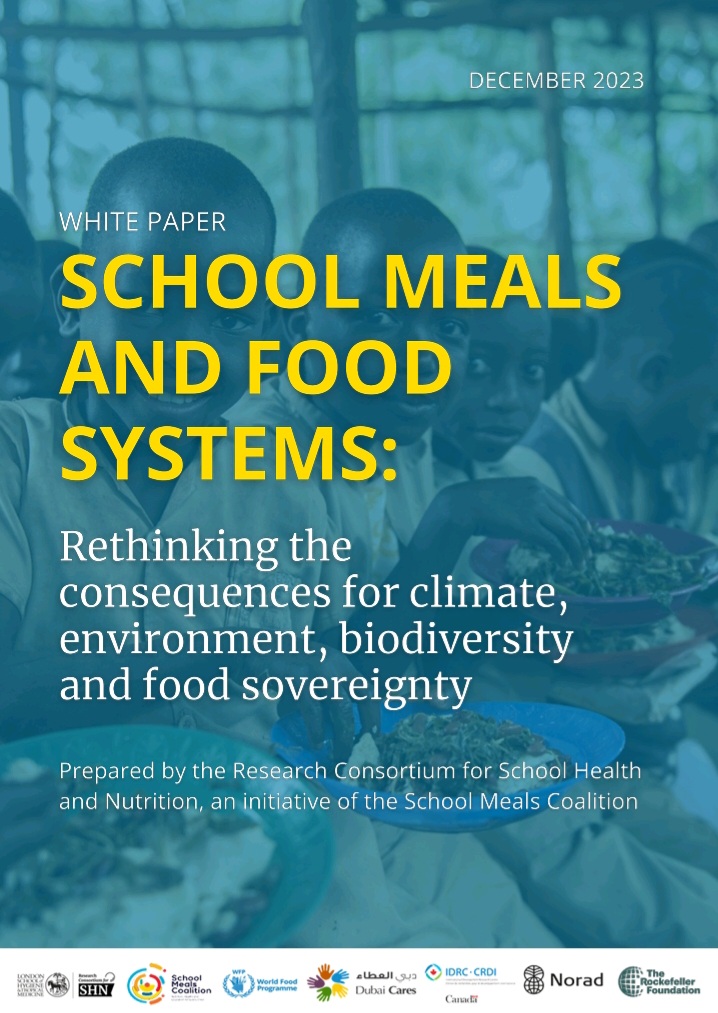Gilbert Ngwaneh Miki, a PhD student in the Department of International Development, School of Agriculture, Policy and Development, contributed to a White Paper titled ‘School Meals and Food Systems: Rethinking the consequences for climate, environment, biodiversity and food sovereignty,’ produced by the Research Consortium for School Health and Nutrition. The Research Consortium for School Health and Nutrition is an independent research initiative of the School Meals Coalition, a multilateral coalition of 95+ countries aiming to improve and expand national school meal programs for all children.
The world is facing environmental and nutrition crises, that disproportionately affect children. Approximately 180 million school-age children live with malnutrition, and 1 billion children are at high risk of suffering from food insecurity. This threatens the education, growth, and development of children and adolescents worldwide, as well as increasing the risks of morbidity and mortality. School meals are being increasingly recognized as a key investment for governments to tackle these challenges. Through national school meal programs, around 418 million children currently receive a meal at school every day. This provides an exceptional opportunity for the implementation planet-friendly policies, which have enormous co-benefits for child health and the wider society.
It is to explore these opportunities that this White Paper was prepared by the Research Consortium for School Health and Nutrition to fill the evidence gaps around school health and nutrition and inform robust policymaking. Coordinated by a Secretariat based at the London School of Hygiene & Tropical Medicine (LSHTM), the Research Consortium operates as a global network of academics and scholars, with research conducted through six Communities of Practice of thought leaders based around the world. SAPD PhD student Gilbert Ngwaneh Miki served as a member of the Diet and Food Systems Community of Practice, which led the production of this White Paper.
The White Paper, written in collaboration with 85 organizations worldwide, explains how implementing planet-friendly school meal programs can provide far-reaching co-benefits for public health and human capital. The paper proposes that, to maximize the transformative potential of school meal programs, governments should focus on two sets of policies. First, those that can create immediate benefits for children and the planet, including: adopting nutritious, diverse, whole foods menus; switching to clean, efficient and sustainable energy for cooking; minimizing food and package waste; and empowering children by establishing life-long healthy and sustainable food habits through holistic food education. Secondly, by leveraging the power of procurement, governments can create demand-driven changes to support sustainable ecological and regenerative agriculture practices, which promote biodiversity, resilience, and food sovereignty. The White Paper was presented as a working paper at the Global Summit of the School Meals Coalition in October 2023.

